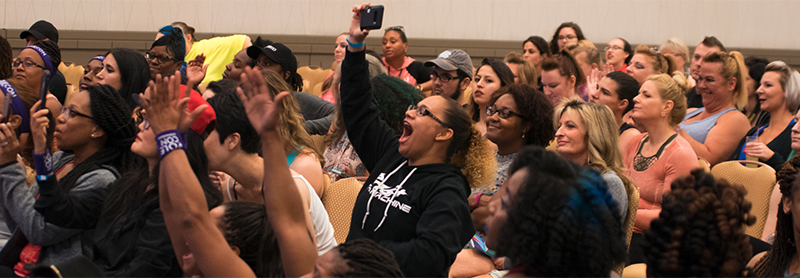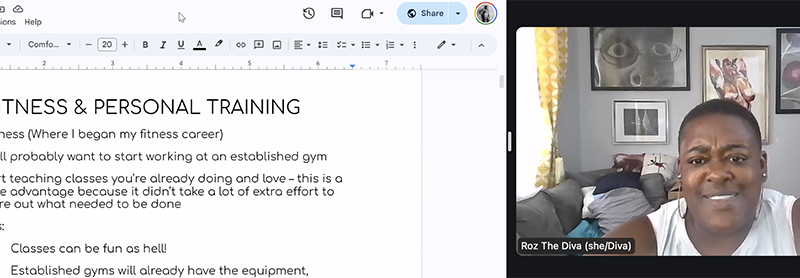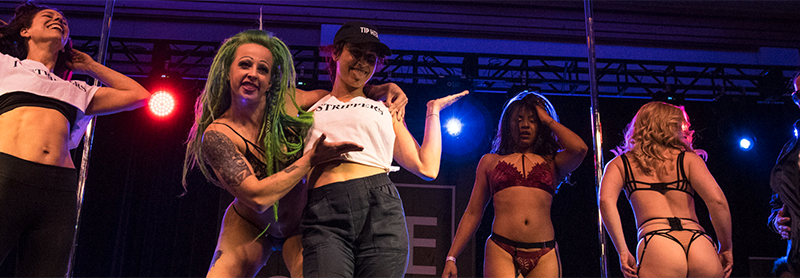[memberonly level=“Group Membership for Businesses of 2-5 individuals, Student, Individual or Solo-Preneur”] Please note that…

Does your pole dance studio or pole dance event have a weapons policy?
As a business owner, especially in a “brick-and-mortar” studio or other pole-based business, it’s our job to keep our clients safe as possible.
As a performer or an event organizer, we need to know what we can bring to an event or gig based on the venue, building, or even applicable local laws.
In these situations, surprises are bad.
Having and posting (physically or online) a weapons policy is a common practice and, in some locations, may allow a business to prohibit concealed carry in their businesses that may otherwise be allowed—check with your local laws to be sure.
Knowing in advance what weapons (or props that could be considered weapons) are allowed in each situation or space you might be a part of or be responsible for can help minimize confusion and avoid uncomfortable or even dangerous confrontations.
What is a “weapon”?
Depending on who’s making the rules, a “weapon” could be anything.
Generally, weapons may be defined as “blades, firearms, pepper spray, projectiles, or clubs, or other.”
Sometimes weapons are generally couched as “items that present a risk of harm to person or property” giving owners broad discretion regarding what to allow or disallow.
Some places allow weapons or have specific laws regarding concealed weapons. Other places might not allow weapons at all. Make sure you understand the laws applicable to your country and locality.
What about PROPS?!
For performers, communicate with your event organizer about anything in your act that could be seen as a weapon.
Similarly, if you run an event, it may relevant to have a check-in process for props that may be mistaken as weapons or you may decide that only clearly “toy” weapons are allowed.
If your event has security, let them know what has or will be checked or tagged (usually brightly colored) to avoid stressful mistakes.
Know before you go!
As performers – it’s important to know before we arrive at a venue to perform what is allowed.
Ask yourself, could your props be mistaken as weapons? Does the venue or organizer have a policy in place?
Also, if you are bringing equipment to set up, ask yourself what tools do you need to set up or secure your apparatus which could also be labeled as weapons?
Traveling with a pole that must go through a metal detector may be screened as a “suspicious metal pipe” by security.
It’s an easy, sometime entertaining, conversation in advance, but it may take a lot of “sequins” to calm them back down after an alarm has gone off!
Post your policy!
If you have a physical studio, physical pole business space, or run events, you need to share your weapons policy with people who will be in your space(s).
To create your policy, first understand the policy of your building/landlord (if any). Think about your business or event location, and what places your customers must travel through to get to your business.
Maybe building security personnel are permitted weapons of some type?
Generally, government-owned, or leased buildings have the most restrictions regarding allowing weapons on their premise. In the United States it’s actually illegal to carry weapons into any federal building. Gambling or entertainment facilities where alcohol is served may also have strict policies about weapons.
If your clients need to travel through one of these places to get to your facility or to attend your event – this becomes your policy by default.
Privately owned facilities have the most options about what weapons they allow and it’s important to think these things through in advance.
It’s up to you but having “no policy” is still a policy and can be interpreted as “anything goes.” As yourself, is that the policy you want?
Weapons policies are often posted at the main entrance to any business or building.
IPIA Members can review a sample weapons policy that they can adapt for their needs in this post.
Realistically, criminals won’t follow the rules, so ask yourself how armed (or not) do you want everyone else?
While a sign won’t stop or solve every situation, it does help clarify expectations.
Like the waivers students or attendees sign in advance, creating a weapons policy for your space or event helps clarify expectations and may avoid uncomfortable or dangerous situations.
Getting the business parts done in advance allows everyone to focus on the fun stuff – pole!



